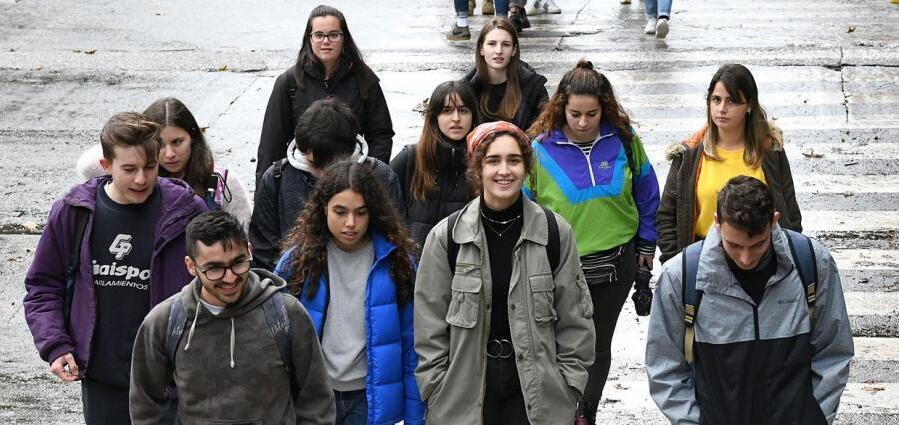
In 2004, the USC published its first Social Responsibility Report, indicating quality and transparency as two guiding criteria for its governance, strategic planning and management.
In defence of the values of freedom, equality, solidarity, protection of the environment and sustainability, these have been consolidated through the social responsibility policies of the USC and the commitment of the university community as a whole.
Social responsibility forms part of the USC's strategic planning and programming and obeys the principles, values and standards set by the USC Code of Ethics as guides and guiding principles of the institution. The Observatory of the Code of Ethics coordinated by the ombudsman of the university community, evaluates its compliance.
Responsible social management at the USC is based on three commitments:
- Commitment to people, who are the cornerstone of the university institution and, consequently, subjects of rights that must be guaranteed for their full exercise. The management of the human capital of the USC involves strategies to improve the training and health and safety of its staff, as well as the development of economic and social benefits. The commitment to people also focuses on the promotion of gender equality and the promotion of gender studies, in accordance with the provisions of the USC Strategic Plan for Equal Opportunities between Men and Women, and in a wide range of university integration actions for people with special needs and others aimed at reconciling family life and work.
- Commitment to quality in teaching, research and services, as there is no social responsibility without quality nor can quality be understood without a firm commitment to social responsibility. This commitment to quality is reflected in various actions: innovations and improvements in the teaching-learning methodology; adaptation of the offer of qualifications; financial support for quality improvement; training of the PDI and the PAS; promotion of the use of ICT; design of programmes for the labour market insertion of graduate students.
- Commitment to sustainable development through the design of a new Sustainable Development Plan aligned with the objectives of the Sustainable Development Goals (SDG) of Agenda 2030 and a range of training, dissemination and environmental awareness actions, as well as the integral management of resources and waste to reduce, absorb and compensate the ecological footprint or promote new mobility formulas in the USC. The USC also carries out voluntary work, participation and international cooperation, social promotion and training in values.
The USC reports on its policies through its Social Responsibility Report, which evaluates seven areas of responsibility by sharing objectives and actions with its stakeholders (PDI, PAS, students, graduate students, suppliers, companies, public administrations and civil society organisations):
- Good governance and transparency. Testing the functioning and democratic quality of the university governance, guaranteeing the active exercise of rights and freedoms and drawing up the accounts in accordance with the principles of transparency.
- Human capital management. Promoting training programmes and active policies for equality, conciliation, safety and healthy living.
- Internal ecology. Promoting integrated management of consumption, treatment of waste, environmental footprint mitigation and alternative forms of mobility.
- Social knowledge management. Ensuring the relevance and quality of the teaching and research carried out at the USC, favouring the increase in research capacity and the transfer of knowledge, transversal training and the promotion of academic and economic support programmes, international mobility, labour insertion and entrepreneurship.
- Extension and Volunteering. Favouring the social promotion of cultural and sports activities and a healthy life, as well as social commitment and activism through volunteering and participation.
- Sustainable development Promoting action programmes such as USClima, USC in Transition, Sustainable Campuses and sustainable food and fair trade initiatives, as well as supporting our own development cooperation projects.
- Relations with other organisations. Programmes of internationalisation and external projection of the USC to create University-Business Chairs, attracting patronage resources and collective financing or informative actions to bring the academic offer of the USC closer to future students, their families and the teaching staff of secondary schools.